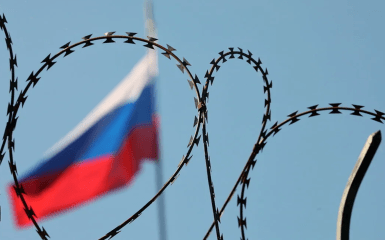A group of international specialists agrees that the blocked funds of the Central Bank of the Russian Federation should remain inaccessible to Russia, if it does not agree to help in the reconstruction of Ukraine.
Russia's frozen funds should be used for the reconstruction of Ukraine
A group of legal experts stated that the confiscation of the frozen assets of the Central Bank of the Russian Federation does not contradict international law, given the scale of Russia's invasion of Ukraine.
Bloomberg writes about it.
The European Union, the "Big Seven" countries and Australia have frozen about 260 billion euros of assets, and over two-thirds are in the EU.
All experts agree that these funds should remain inaccessible to Russia if it does not agree to help in the reconstruction of Ukraine, but so far they differ in their opinions regarding the legality of the complete confiscation of these assets, the publication writes.
The letter, which was sent to the G-7 capitals and obtained by Bloomberg, was signed by ten experts in international law and practitioners from Belgium, France, Germany, Japan, the Netherlands, Great Britain and the United States, who seek to justify the legal basis for confiscating these assets.
We have concluded that, under international law, it would be legal for states that have frozen Russian state assets to take additional countermeasures against Russia, given its continued violation of the most fundamental norms of international law, in the form of the transfer of Russian state assets as compensation for damages , which arose directly as a result of Russia's illegal actions, experts write.
Among the signatories of the letter is professor and former dean of Yale Law School Harold Honju Koch, who was also a legal adviser to the US State Department during the Obama administration, and Philip Zelikov of the Hoover Institution, an attorney and former diplomat who worked in the government for times of various presidents, including as a strategic consultant to the Biden administration.
Seven of the remaining signatories are scholars and practitioners of international law from Europe and one from Japan.
The letter comes as the G7 nations discuss what to do with the assets in question, as Ukraine's financial needs remain unabated and the war shows no sign of abating. The EU is making slow progress on plans to at least impose a windfall tax on frozen funds. Last year, these funds made it possible to get a profit of 4.4 billion euros, Bloomberg adds.
Confiscation of Russia's frozen assets: what is known
Great Britain and the United States are pushing the G-7 allies to fully confiscate the Central Bank of the Russian Federation's assets, and according to officials familiar with the discussion, Canada is open to this idea.
European G7 members, especially France and Germany, are currently opposing the move due to legal issues and concerns that it could harm the stability of the euro and set a dangerous precedent.
President Joe Biden's administration is backing a bill to seize some of the $300 billion in frozen Russian assets to provide to Ukraine.
Russia is preparing a legal action to thwart any attempt by the US or the EU to confiscate some of the Central Bank's frozen assets worth $300 billion in favour of Ukraine.




